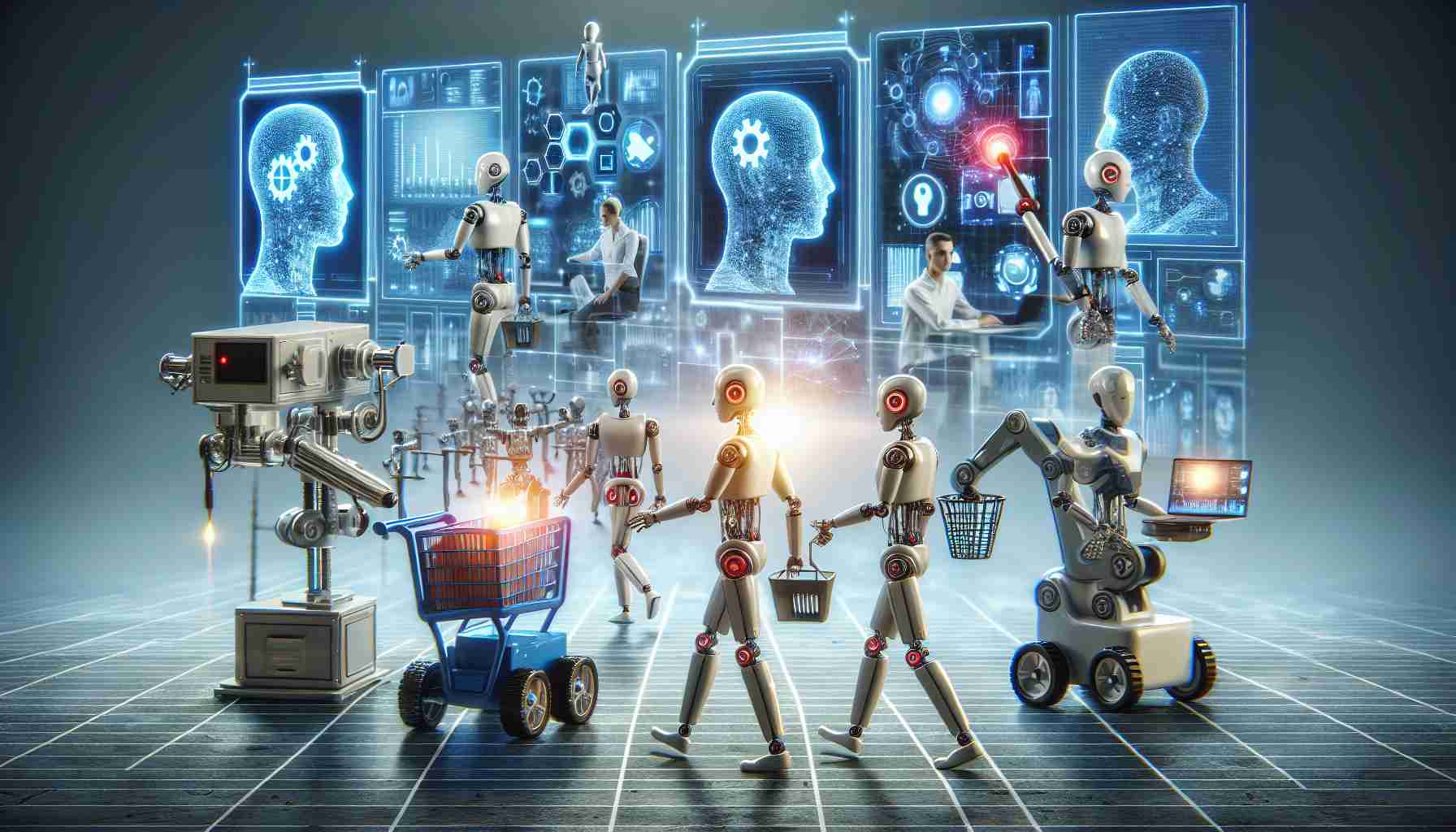A transformative shift is occurring in the tech landscape that goes beyond common discussions about digital innovations. This evolution centers around a groundbreaking concept: the development of Autonomous AI Systems, which are poised to redefine the future of work.
Leading experts in technology are now focused on creating AI systems capable of executing intricate tasks independently. These entities are being designed to make decisions and collaborate seamlessly, embodying a new workforce paradigm. This movement has garnered attention from researchers, revealing that a significant portion of the workforce could be affected by advancements in AI technologies. A recent study highlighted that nearly 80% of U.S. jobs could see at least 10% of their responsibilities transformed by these systems.
Notable figures in the tech industry are articulating plans to employ these Autonomous AI Systems across various sectors. For instance, one visionary leader predicts that AI would not just serve as a tool but act as a partner in various facets of life, ranging from personal coaching to legal support. Another key player envisions specialized AI roles emerging, enhancing the efficiency of crucial professions such as medicine and education.
Investment firms are recognizing this wave and investing in AI applications that align with these goals. New ventures are emerging, focusing on automating professional roles, progressively illustrating how these AI systems will shift operational landscapes.
As these advancements unfold, society will face essential questions about employment and the ethical implications of integrating AI into the workforce. The transformative potential of Autonomous AI Systems presents opportunities coupled with critical challenges that need addressing.
Tips and Life Hacks for Embracing Autonomous AI Systems
As the world increasingly embraces Autonomous AI Systems, it’s important to adapt and thrive in this new landscape. Here are some practical tips, life hacks, and intriguing facts to help you navigate this transformative shift.
1. Embrace Lifelong Learning: With AI rapidly evolving, ensuring your skills remain relevant is crucial. Consider taking online courses or attending workshops related to AI, data analytics, and machine learning. Platforms like Coursera or edX offer courses that can enhance your understanding of these technologies.
2. Understand AI’s Role in Your Industry: Determine how Autonomous AI Systems can enhance your current job or industry. For example, if you work in marketing, familiarize yourself with AI tools that analyze consumer behavior or automate campaigns. Being proactive can set you apart in the workforce.
3. Collaborate with AI: Instead of viewing AI as a competitor, think of it as a collaborator. In roles involving data analysis or project management, use AI tools to process information faster and support decision-making. This will allow you to focus on higher-level tasks that require human creativity and empathy.
4. Stay Informed About Ethical Implications: As AI becomes more integrated into work, understanding its ethical implications is vital. Engage in discussions about AI ethics and consider the impact of AI on privacy, employment, and bias. Being informed helps you advocate for responsible AI usage.
5. Network with AI Enthusiasts: Join forums, attend seminars, or participate in meetups focusing on AI technology. Connecting with like-minded individuals can provide insights and foster innovation. The knowledge shared in these communities could be invaluable for your career.
Interesting Fact: Did you know that according to a McKinsey report, AI could enhance the productivity of global labor by 40%? This implies that as AI systems are integrated into various sectors, the economy may witness significant productivity leaps.
6. Develop Soft Skills: As AI handles more technical tasks, the demand for soft skills like communication, emotional intelligence, and creativity will rise. Invest time in developing these areas to complement your technical knowledge and adapt to the changing job landscape.
7. Experiment with AI Tools: Familiarize yourself with various autonomous AI tools available for personal and professional use. Whether it’s AI-driven writing assistants, project management tools, or even scheduling applications, experimenting can help you find tools that boost your efficiency and productivity.
Final Thought: The emergence of Autonomous AI Systems signifies not just a change in technology but a shift in how we approach work and collaboration. Embracing these changes with an adaptable mindset can lead to innovative opportunities in the future workforce.
For additional insights about technology and future trends, visit MIT Technology Review for articles on cutting-edge advancements.
